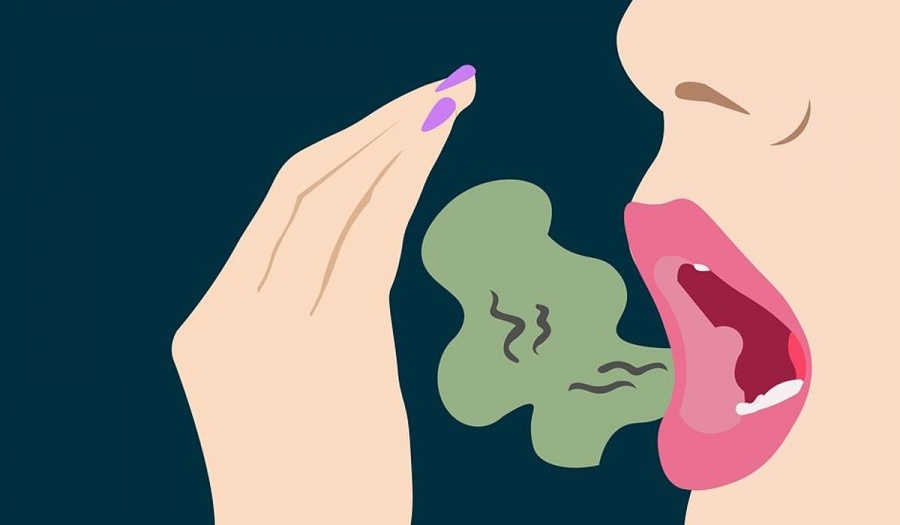
Wanting to chat with friends and family without stressing over bad breath is totally normal, especially during holidays or anytime you're hanging out. Did you know that one out of four people deals with bad breath regularly? It's a legit worry that can affect how we connect with others.
We all get morning breath or garlic breath after lunch, but for a lot of people, bad breath all the time is a bigger issue. So what causes bad breath? The reasons for bad breath can vary, from morning routines to health problems, but not taking care of your teeth is often the main culprit. The good news is, understanding why it happens and doing some easy things at home can help you keep your breath fresh and worry-free in social situations.
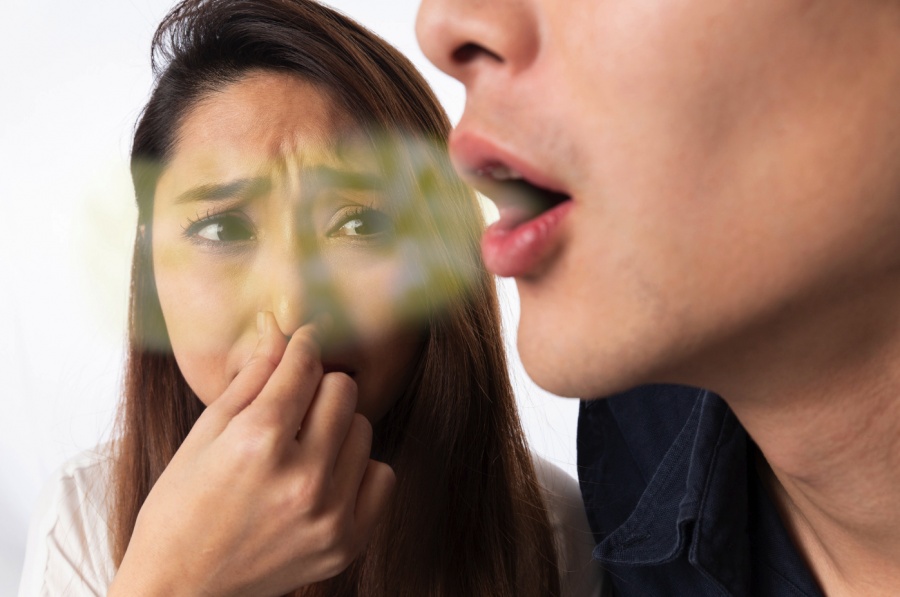
THE CAUSES OF BAD BREATH
Some of the causes of bad breath might surprise you: It's often caused by a dirty tongue. The bumpy surface of the tongue collects leftover food, bacteria, and cells from your mouth. If you don't clean this buildup, it starts to rot, yes rot, and makes your breath stink.
Most of the time, bad breath causes include not taking care of your mouth properly. Whether it's a fuzzy tongue, gum issues, or not brushing and flossing well, these lead to a bunch of oral bacteria doing their thing on leftover food, creating stinky compounds. So, keeping your teeth clean is the first step at stopping bad breath.
Sometimes bad breath can be caused by dental treatments, such as dental implant treatments. Usually bad breath after implant treatments is caused by an infection, so consulting to your dentist to find out the cause is recommended.
However, sometimes it's not just about your mouth. If you're on a special diet, like a low carb "keto" diet, your breath might smell like bad fruit. And bad breath can also come from non-mouth problems, like infections in your sinuses or tonsils, or stomach issues like acid reflux. If that's the case, your doctor might give you treatments or medicines to fix it. So, if you’re asking, ‘how to get rid of bad breath’, here are some of the ways you can try:
BRUSH AND FLOSS REGULARLY
The most important step is brushing your teeth regularly. Taking care of your teeth is super important because bacteria love hanging out in leftover food. Sometimes forgetting to brush might not seem important, but over time it can cause bigger problems. Brushing for two to three minutes, twice a day, helps with bad breath-causing reasons. Also crucial, don't forget to floss. It stops bacteria from growing in tricky spots. So, make it a routine to keep your mouth healthy and your breath fresh. Brush and floss twice a day and change your toothbrush every three months or after being sick.
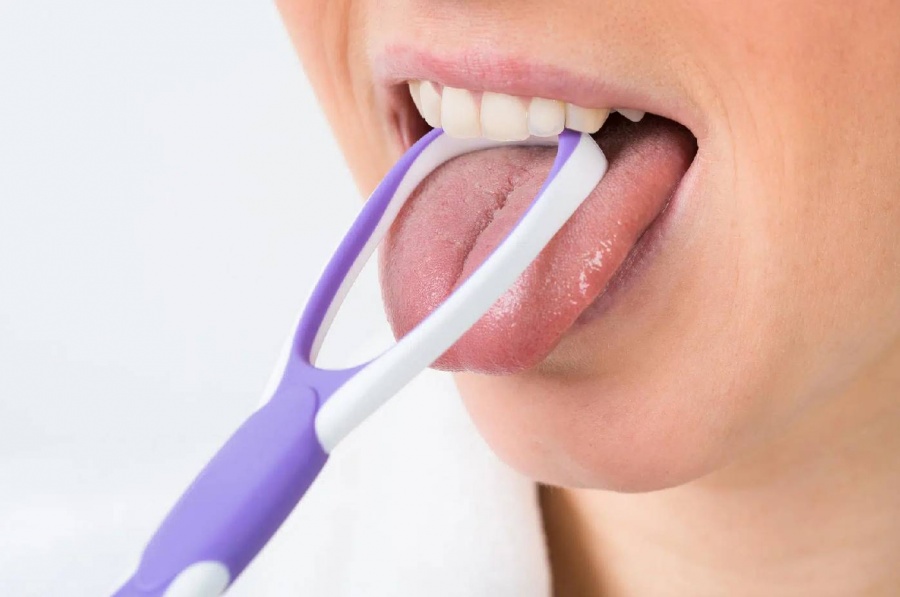
CLEAN YOUR TONGUE
Cleaning your tongue is another simple step that can make a big change. You can use a plastic or metal tongue scraper from the store, or just your toothbrush. It not only helps with bad breath but also makes your taste buds work better by removing the remnant food layer on your tongue.
Tongue scrapers are a better option if your toothbrush is too big for the back of your tongue. You can determine this if you gag every time you try to brush the back of your tongue.
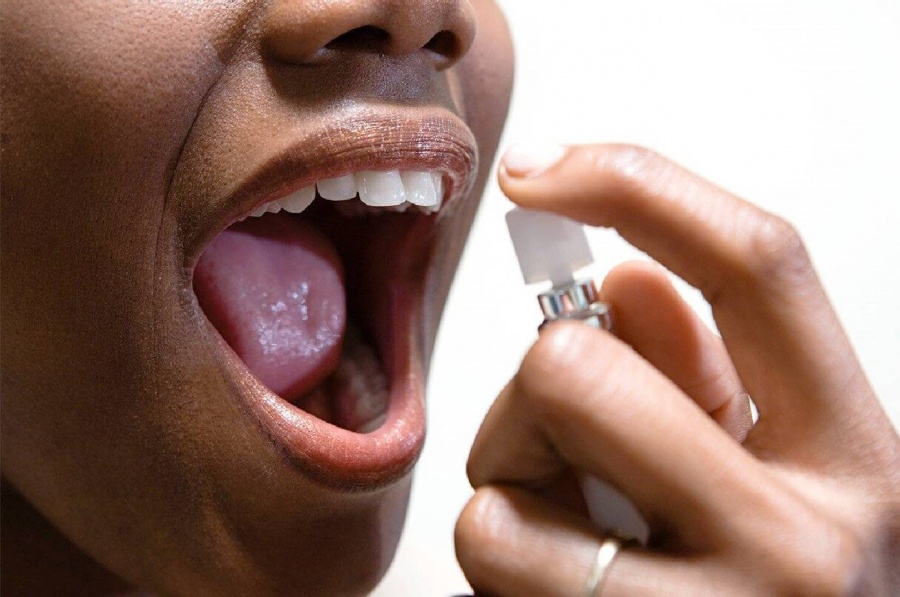
USE MOUTHWASH REGULARLY
Mouthwash is a quick way to freshen breath and clean out leftover food and bacteria. It masks bad odours but doesn't solve chronic bad breath. Antibacterial mouthwash kills germs causing odours and reaches tricky spots like the back of teeth. For persistent bad breath, talk to your dentist about a comprehensive oral care plan, including mouthwash, tongue cleaning, and regular brushing.
DRINK PLENTY OF WATER
One of the biggest causes of bad breath is not hydrating properly. If you’re asking how to fix bad breath, hydration might be the answer. Keep your mouth hydrated by drinking about six to eight cups of water daily. Dry mouth, a common cause of bad breath, can be alleviated with consistent hydration. Adjust your water intake based on your activity level. Water not only keeps your mouth moist but also flushes away food particles and dead cells, preventing germ growth. Opt for water over drinks like coffee and soda, as it's odourless and sugar-free.
CHEW GUM
When it comes to dealing with bad breath, sugarless gums and mints offer a convenient solution. Chewing stimulates saliva production, effectively flushing out bacteria and food particles that lead to unpleasant odours. Additionally, gum acts like a mini-cleaner, picking up lingering food bits and making it challenging for bacteria to thrive. Also, gums containing xylitol, a natural sweetener with antibacterial properties, adds an extra layer of defence against bad breath. Xylitol not only aids in maintaining oral health by reducing tooth decay but also contributes to freshening your breath.
AVOID TOBACCO PRODUCTS
Tobacco products not only lead to bad breath but also contribute to oral health problems. Smoking causes dryness in the mouth, fostering tooth decay and persistent bad breath. Quitting smoking is crucial for improved oral health, as it weakens the immune system and promotes bacterial growth. Additionally, smoking increases the risk of gum disease, often accompanied by unpleasant breath.
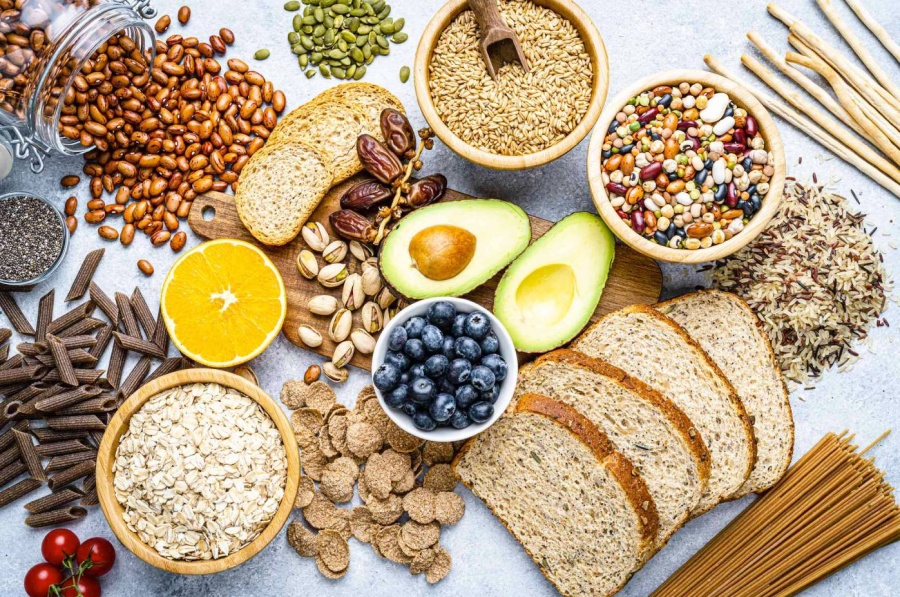
EAT FOODS THAT ARE RICH IN FIBRE
Foods high in fibre boost saliva flow, helping with bad breath treatment. Snack on apples, carrots, or celery between meals for freshness. Avoid alcoholic and caffeinated drinks, which can dry your mouth and promote bacterial growth. Eat fibre-rich foods as natural toothbrushes, removing leftover particles on teeth and reducing odour-producing bacteria.
CONSULT TO YOUR DENTIST
If you’re wondering how to get rid of bad breath permanently, you first need to find the cause of it. Of course, types of bad breath smells vary. For example, bad breath after tooth extraction is completely different than regular bad breath. Bad breath after a tooth extraction can be due to infection, bleeding, dry socket, poor oral hygiene, or reduced saliva.
Another solution might be teeth whitening. Teeth whitening helps remove residues and discolorations on the surface of your teeth. These can lead to bacteria buildup and bad breath, so teeth whitening can also help with bad breath.






